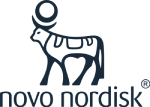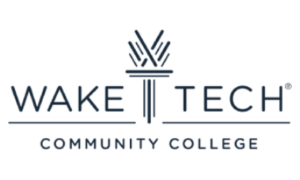What is Clinical Documentation?
Clinical Documentation is a critical component of healthcare that involves the detailed recording of a patient’s medical history and treatment. It includes various formats such as written notes, electronic records, and audio entries, capturing all essential patient information. Effective clinical documentation ensures high-quality care, supports clinical decision-making, and facilitates communication among healthcare providers.
Technology
The adoption of electronic health records (EHRs) has transformed clinical documentation by enabling real-time access to patient information, streamlining data entry, and enhancing record accuracy. EHRs facilitate data sharing among healthcare providers, leading to better-coordinated and more efficient care.
Challenges
Clinical documentation can be challenging due to time constraints, complex patient cases, and varying documentation standards. To overcome these challenges, healthcare providers should adopt standardized documentation protocols, provide regular training, and leverage technology to reduce the administrative burden. Ensuring documentation is clear, concise, and complete is crucial for optimal patient care and operational efficiency.

Goals of Clinical Documentation
Ensuring Continuity of Care
One of the primary goals of clinical documentation is to ensure continuity of care. Detailed and accurate records provide a comprehensive account of a patient’s medical history, current conditions, and treatment plans. This information is crucial for healthcare providers to make informed decisions and deliver consistent care, especially when multiple providers are involved.
Supporting Decision-Making
Clinical documentation provides the essential data needed for informed clinical decision-making. It includes patient symptoms, diagnoses, test results, and treatment responses, which help healthcare providers develop effective treatment plans. High-quality documentation allows for better evaluation of patient progress and adjustments to care as needed.
Enhancing Communication
Effective communication among healthcare providers is critical for patient safety and quality care. Clinical documentation serves as a communication tool that ensures all members of the healthcare team are informed about the patient’s condition, treatments, and any changes in care. This reduces the risk of errors and ensures that everyone involved in the patient’s care is on the same page.
Legal and Regulatory Compliance
Clinical documentation serves as a legal record of the care provided to patients. It is essential for meeting regulatory requirements and standards set by healthcare authorities and accreditation bodies. Accurate and thorough documentation helps protect healthcare providers in legal situations by providing evidence of the care delivered and the decision-making processes involved.
Facilitating Billing and Reimbursement
Accurate clinical documentation is vital for the billing and reimbursement process. It ensures that healthcare services are properly coded and billed, reflecting the care provided to patients. Comprehensive documentation supports claims submitted to insurance companies and other payers, reducing the risk of claim denials and ensuring timely reimbursement for services rendered.
Supporting Quality Improvement and Research
Clinical documentation plays a key role in quality improvement and research within healthcare organizations. Detailed records provide data for analyzing patient outcomes, identifying trends, and evaluating the effectiveness of treatments. This information is invaluable for continuous improvement, clinical trials, and advancing medical knowledge.
Our Services
The professionals we hire and staff include:
Frequently Asked Questions
What is the significance of clinical documentation?
The significance of clinical documentation extends far beyond its role as a mere record-keeping tool. It serves as the backbone of patient care, providing a comprehensive and chronological account of a patient’s health journey. This vital process not only ensures the continuity and quality of care but also plays a crucial role in risk management, regulatory compliance, and healthcare research. Accurate and detailed clinical documentation facilitates effective communication among healthcare providers, supports clinical decision-making, and helps identify trends in patient outcomes.
How does TimelyText support organizations in achieving their clinical documentation goals?
At TimelyText, we understand that each healthcare organization has unique clinical documentation objectives. Our comprehensive approach ensures that we not only meet but exceed your expectations in achieving these goals. We work closely with your leadership team to understand your organization’s specific challenges, priorities, and long-term vision for clinical documentation. This collaborative approach allows us to develop tailored strategies that align with your overall healthcare mission.
Can TimelyText customize clinical documentation services for specific clients?
Yes, these services can be tailored to meet the unique needs of healthcare providers and life sciences firms, whether they are small clinics, large hospitals, or research organizations. Customization can include specific documentation protocols, EHR systems, and reporting requirements.
What is the typical turnaround time for TimelyText's services?
Turnaround times may vary depending on the complexity of the project. TimelyText is committed to delivering high-quality clinical documentation services within reasonable timeframes. We work closely with our clients to establish realistic timelines based on project scope and complexity, ensuring timely and efficient delivery.
How can I get started with TimelyText for clinical documentation services?
Getting started with TimelyText is easy. Simply reach out to us through our contact page, and our team will connect with you to understand your specific needs. We’ll discuss your requirements, project timelines, and any other considerations to ensure a seamless and effective collaboration for your clinical documentation needs.
Our Featured Clients
Give us a call at
919.847.2580
Ready to work with us?
Submit Resume
Still have questions?



























